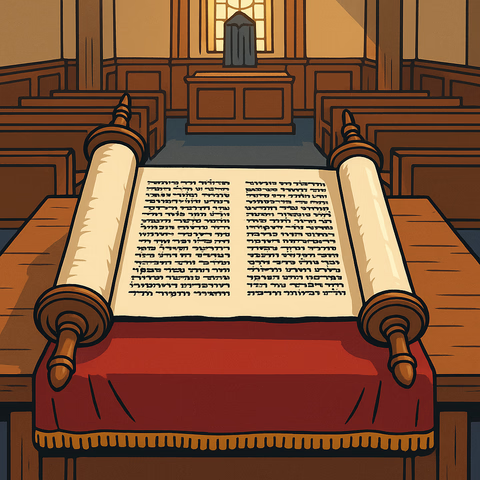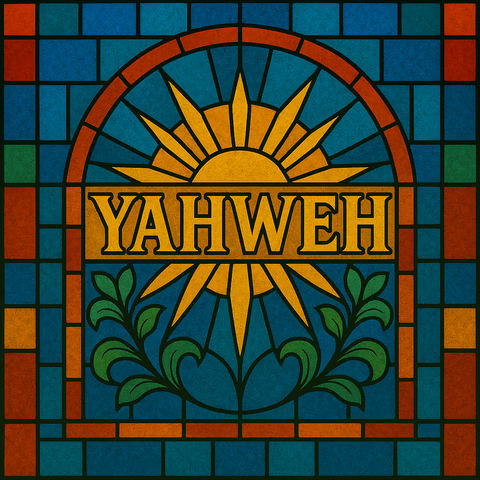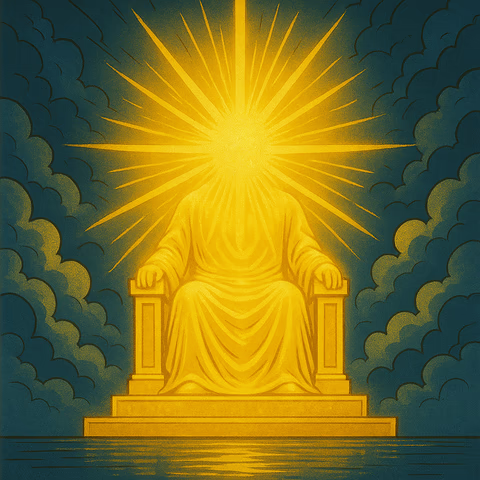
Was God’s Name Restored Incorrectly in Hebrew?
We suspect that God’s Name YHWH (Yahweh/Jehovah) may have been, at one time, removed from the Hebrew Bible books, but was then later restored; and then scribes accidentally put it back in too many places about 112 times.
The theory goes that most, perhaps all, instances of ‘YHWH’ were removed from the Hebrew text and replaced with ‘Lord.’ Later, it was restored to the text, but the scribes now had to guess where it originally said ‘YHWH’ and originally said ‘Lord,’ and they got it wrong in a few places.
Why do we suspect this? When could it have happened? And why would anyone have done such a thing anyway?
Was it removed?
It’s widely known that the Jews became hesitant to use or write God’s Name either during or after the exile in Babylon. Perhaps it was out of superstition (as some say), or maybe it was out of shame for the dishonor they brought upon the Name.
Therefore, the Name was probably removed from the Hebrew text (or Aramaic translation) sometime after the Jews returned from Babylon in the 6th century BC. Later, the Name must have been restored in time for the Dead Sea Scrolls to feature the name in the 1st century BC. So there is a large window.
The theory goes that the Jews replaced YHWH with a word for ‘Lord’ when they recopied their Hebrew texts. Sometime later, they had a change of heart and restored it.
Alternatively, George Lamsa (the creator of the Lamsa Bible from Aramaic into English), argued that the Hebrew text was entirely lost sometime after the Babylonian captivity and that the Bible only survived as an Aramaic translation. He argues that the Hebrew text we have today could be a back-translation from Aramaic (the two languages are actually very similar, more like dialects). If that’s what happened, perhaps they replaced all instances of YHWH with the Aramaic word MarYah (‘highest Lord’) before restoring the name upon recreating the Hebrew version.
We can’t prove that either of these things happened. Perhaps whatever happened was more complicated. Whatever the case, we suspect that something like that could have happened. Why?
1. In some places, God’s Name breaks the normal customs of Hebrew poetry
For example, word-for-word Psalm 19:9, says this in the Hebrew text:
‘The/fear of/Yahweh (יְהוָ֨ה) is/clean,’
Enduring through/ages;
The/Judgments of/Yahweh (יְהוָ֨ה) are/true,
Righteous altogether.’
What’s the problem? In Hebrew poetry, the author should use a synonym or a simile instead of repeating the same thing twice. So we would expect to see YHWH in the first sentence, and Lord in the next sentence (or vice versa). Yet instead, we see YHWH twice in a row.
The Greek Septuagint also has the same error, because Lord appears without ‘the’ beforehand in both places, suggesting that both instances said YHWH in the Hebrew text used by the translator. This would suggest that, if the name was indeed removed and ‘restored’ to the Hebrew Bible, it must have occurred before the appearance of the Greek Septuagint. In other words, before the 3rd century BC.
So if this happened, the window is reduced to between the 6th and 3rd centuries BC.
We explore this idea in our Bible translation and see what happens when we ‘correct’ the text (assuming that there is, indeed, anything to correct), so the verse says:
‘The fear of Yahweh is pure…
It lasts through the age and through ages of ages.
And the judgments of the Lord are all true,
For they bring equal justice to all.’
If the theory is right, then we don’t know whether we have put this the right way around, but at least there’s a 50% chance that we did.
2. Several prophecies about the Messiah read incorrectly
For example, in Romans 10:13, Paul quotes Joel 2:32, which says in the Hebrew text:
‘Then, ‘all who call on the name of Yahweh (יהוה) will be saved,’ said Yahweh (יהוה).’
Why does Yahweh not say, ‘all who call on my name will be saved’ instead? Also, the context indicates that God was speaking of someone being sent by Him and that it was this other person’s name that people were supposed to call upon. Christians would say that it’s the name of Jesus.
Indeed, this is the point Paul was making when he quoted the verse! Paul was not encouraging people to call on the name Yahweh but on Jesus, the Son of Yahweh! The Jews had already been calling on the name Yahweh for centuries; it was not new. Calling on the name of Jesus, however, was new.
Our theory, therefore, causes us to speculate that it may have originally said:
‘Then, ‘all that call on the name of the Lord will be saved,’ said Yahweh.’
Another example is in Isaiah, in chapters 50 and 51.
In the Hebrew text, Jehovah/Yahweh is spoken of in the third person, but then He appears to speak in the first person. This continues to shift confusingly all the way until chapter 53. Yet once you realize that YHWH may have been restored too many times, you can ‘correct’ it until it all makes sense.
For example, the Hebrew text starts by saying:
‘And Yahweh said this to me…’
And then it quotes what ‘Yahweh’ said to Isaiah.
But then ‘Yahweh’ Himself says (in verse 4):
‘Yahweh gave me a tongue to instruct,’
And then:
‘Yahweh will come to my aid,’ and so on.
Huh? Yahweh gave Yahweh a tongue? Yahweh will come to Yahweh’s aid?
Later on, in chapter 53, Yahweh even quotes Yahweh…
The simplest answer is that it’s not Yahweh speaking; that scribes wrongly restored ‘YHWH’ to places where it originally read ‘Lord’.
We understand from the wider context that ‘Lord’ was a spirit messenger (perhaps, as some believe, even Jesus himself) who was delivering God’s messages. Indeed, the chapter is a messianic prophecy that describes many of the things that Jesus was to endure.
Caution
So in our translation, we are very cautious about saying Jehovah/Yahweh wherever the Hebrew Masoretic text says YHWH, and also cautious about places where the Greek Septuagint uses Lord without ‘the’ beforehand (the standard way in which it replaced YHWH).
If God’s Name had indeed been removed and restored from the Hebrew text prior to when the Greek Septuagint was translated, then both Hebrew and Greek texts are suspect when it comes to placement of the Name.
Generally, if the context shows that a spirit messenger is talking, we refer to that messenger as the Lord. If the context shows that it’s not Yahweh being referred to, but another Lord, then we will say the Lord.
Of course, we might be wrong, but it’s important to consider this possibility, because if we’re right, then a lot of problems are solved.
Note: We are gradually linking all instances where we ignore the YHWH in the Masoretic Text to a translator note which explains why, such as in Joel 2:32.
Another possibility?
There is, however, a possible explanation for YHWH speaking to YHWH in some verses. It is the ancient ‘Two Powers in Heaven’ doctrine. What’s that?
It’s an idea common among ancient Jews between the 1st century BC until it was declared ‘heresy’ in the 2nd century AD and fell out of favor. Some aspects of it can still be found in Jewish mystical traditions like Kabbalah and Hasidism today.
It posited that two aspects of God existed. These are either two manifestations of God or two distinct entities with divine power that collectively form God. These were often considered as God alongside his ‘hypostasis’ or manifest presence (the Shekhinah) or interpreted by some to be God and his primordial Wisdom (the Hokhmah), or even as God and the Angel of the Lord (the Memra).
So if the second duplicate YHWH in Isaiah and other books is not a mistake, but is original, it may be that one of them was some kind of agent of God bearing his name. In other words, while is a different person, they would both be referred to by the name YHWH, and no mistake is present.
The late well-respected author Michael Hesier (writer of Two Powers in Heaven), stated this:
‘…the ‘original model’ for the two powers idea was the role of the vice-regent of the divine council. The paradigm of a high sovereign God (El) who rules heaven and earth through the agency of a second, appointed god (Baal) became part of Israelite religion…
‘For the orthodox Israelite, Yahweh was both sovereign and vice regent… The ancient Israelite knew two Yahwehs—one invisible, a spirit, the other visible, often in human form…’
During the Second Temple period, Jewish theologians and writers speculated on an identity for the second Yahweh. Guesses ranged from divinized humans from the stories of the Hebrew Bible to exalted angels. These speculations were not considered unorthodox. That acceptance changed when certain Jews, the early Christians, connected Jesus with this orthodox Jewish idea.
Of course, since we suspect that the textual corruption took place between the 6th and 3rd centuries BC, it could also be that this ‘two powers’ idea was itself influenced by the corruption. The simple fact is, we don’t know for sure what happened.
We merely explore the possibility of incorrect restorations of YHWH in order to draw attention to it, as it is not a feature present in other Bible translations, and few people have heard about it.
God’s Name
 God’s Name
God’s Name Circumlocutions for God’s Name
Circumlocutions for God’s Name God’s Name in Christian Texts
God’s Name in Christian Texts MarYah: An Aramaic Replacement for God's Name
MarYah: An Aramaic Replacement for God's Name Was God’s Name Restored Incorrectly in Hebrew?
Was God’s Name Restored Incorrectly in Hebrew? Timeline of God's Name
Timeline of God's Name
Also see our Articles index and our About section.